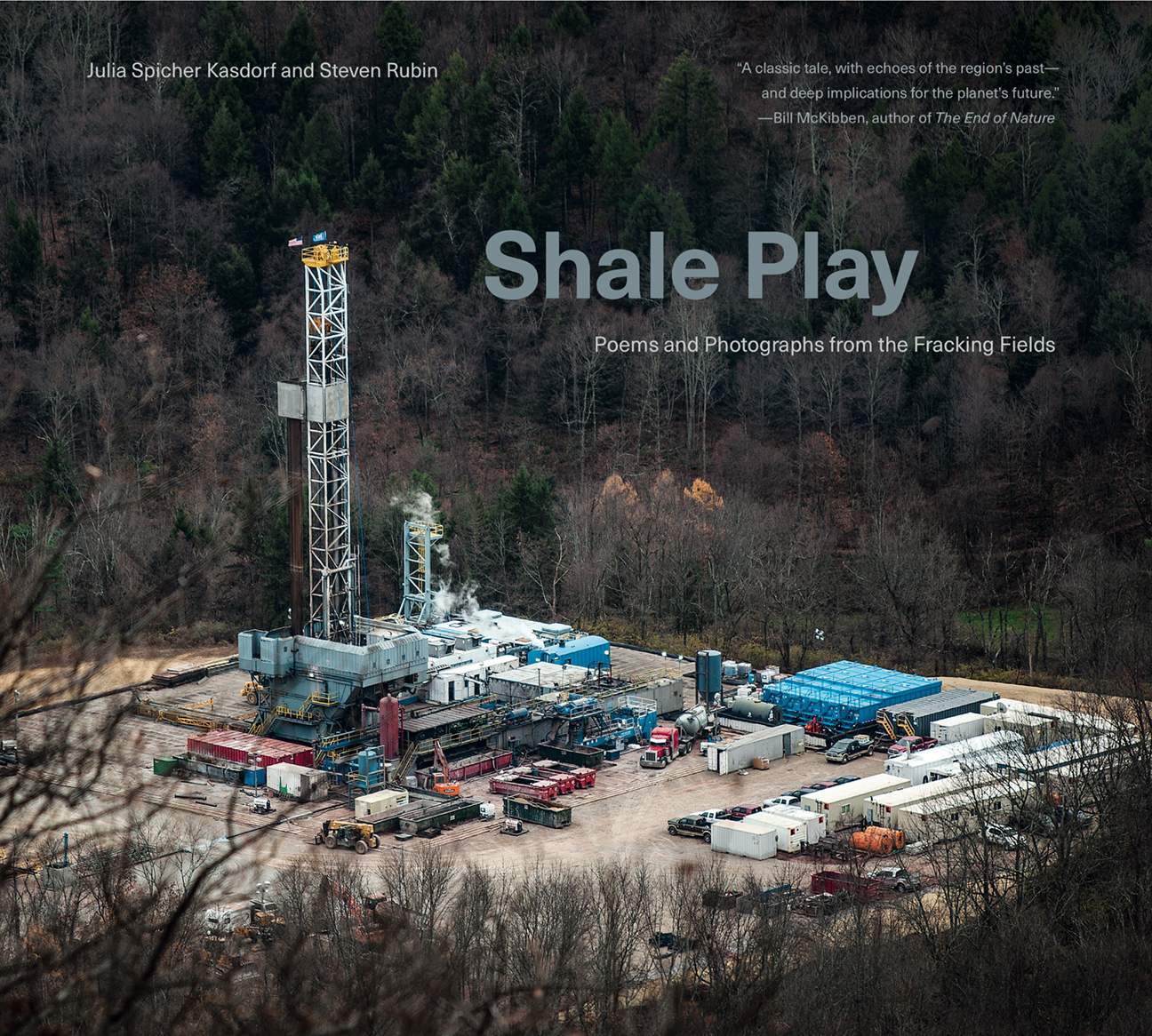
Shale Play: Poems and Photographs from the Fracking Fields
“The long sleep of the Appalachians has been dramatically interrupted by the sudden discovery of the Marcellus Shale. This book helps us see and understand what that has meant for the region. It’s a classic tale, with echoes of the region’s past—and deep implications for the planet’s future.”
—Bill McKibben
“Rarely have I read a work that so strongly, profoundly, and empathically characterizes the history of a region through those who have labored hardest to make a decent life in a beautiful yet ravaged land. These polyvocal poems are rooted in a documentary sensibility but lift into higher registers of aesthetic experience, and along with the arresting photographs, they juxtapose the beautiful and the ugly, the natural and the industrial, the tracks of labor on the land and in the faces of the residents.”
—Alison Hawthorne Deming
“Kasdorf’s poems are told in the voices of the members of these communities in the style of Edgar Lee Masters’ classic volume ‘Spoon River Anthology.’ A pastor laments, ‘Oh, I’ve got plenty / to keep me on my knees.’ while an angry mother rages, ‘Let them think I’m too dumb to back down. My son / won’t play on any T-ball team with industry logos on their shirts.’
Rubin’s photographs match Kasdorf’s words in their documentary style reminiscent of the Farm Security Administration photographs of Dorothea Lange and Walker Evans.”
—Kristofer Collins, Pittsburgh Magazine
“For nearly fifty years, my wife and I have lived in Armstrong County, Pennsylvania, a beautiful place but one with few well-paying jobs. Combine that scarcity of jobs with fracking and a gerrymandered state legislature in the pocket of extractive industries (Pennsylvania, for example, has been the only state without an extraction tax for gas). That’s the situation described by Kasdorf and Rubin in Shale Play, a powerful book about not just central Pennsylvania but much of Appalachia.”
—Ed Ochester, editor, Pitt Poetry Series
Order Here from Penn State Press